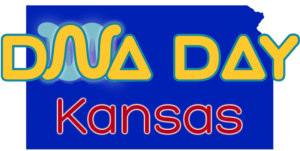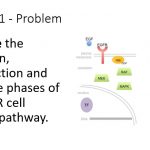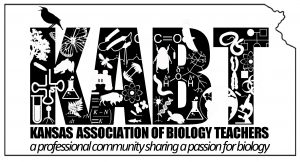A Review of DNA Day 2017
DNA day, the third Friday of April, has been established to recognize and celebrate the advancements in the understanding of this amazing biological molecule. This is the second year KU has celebrated by organizing an outreach program where industry and academic scientists are sent to high school classrooms to present various topics.
Feeling adventurous, I decided to try something new this year and signed up my freshman general biology class and my four senior molecular biology classes to accept these speakers. During the process, I was prompted to choose what modules would be presented. The menu included Model Organisms, Pharmacogenomics (Personalized Medicine), Genomic Inheritance, Immunology, and Phylogeography.
I selected the basic genomic inheritance module for my general biology students, and the pharmacogenomics module for my molecular biology students. Our expectations are shaped by our experiences, so I assumed I would get one presenter repeating the presentations over two block days of classes. Instead, each molecular biology class was assigned a different volunteer. One of the volunteers covered both a molecular biology class and my general bio class.
The genomic inheritance module presented to my freshmen was a lecture over the central dogma of biology, a dash of cloning, and a saliva DNA extraction. In the pharmacogenomics module, PTC tasting strips and the varying responses of a classroom population to those strips were used to model the consequences of varying receptor morphology, and explain why any specific drug may have wide variance in its effectivity and side effects in the general population.
So. Was it worth it?
In a nutshell, yes.
The students enjoyed the contextualization of the biology we have been studying. They benefit from seeing that someone with a Ph.D. in biology, biochemistry, or chemistry is a regular person, not unlike them. The diversity of science as a global discipline was strongly illustrated, as the distributions of origins and ethnicities of the volunteers were large. Student schema development of these biological concepts was enriched by approaching the topics from different directions.
Though all the Pharmacogenomics presentations were given from the same PowerPoint slide show, each presenter had a unique research history. This informed the presentations, as each gave different anecdotes and supporting details. I took notes, and now have a much wider array of anecdotes at my disposal.
I recommend participating in KU’s DNA Day outreach program, but with caution.
First, I do not recommend the general Genomic Inheritance module. This module was a general summary of the central dogma, but nothing in this module is something that we don’t already address in our classrooms as part of the NGSS. The 5-step cookbook DNA extraction (spit, soap, salt, ethanol, stir) showed them the stringy white boogers that are chromosomes, all without leaving their seats. My freshmen biology students have not taken chemistry, and I have not devoted my biology class to laying the groundwork necessary to understand the extraction process. Students must accept that the floating gunk is DNA because we tell them it is. I do not recommend this module, and I will not be doing it again next year.
Second, executing science investigations and teaching are two different skills. A person can devote themselves to developing multiple skills, but do not expect to receive a presenter who is a high school teacher. To make these visits successful, you must be active. These doctors of philosophy of science are calibrated to addressing graduate students. They move at the speed of a 17th grade classroom. You will need to interrupt, as you would a video, and ask your students to summarize, or identify the relationships between concepts, or seek clarification. Though all my students came away with new connections between concepts, the presentation alone would not have done it.
Too long, didn’t read?
KU’s DNA Day is great. You should do it (learn more here), but avoid the genomic inheritance module. It is nothing you haven’t already done, and you don’t need a Ph.D. to read the steps of a cookbook extraction to your students. You’ll also need to be active to support your students during any of the presentations.

 Next Post
Next Post